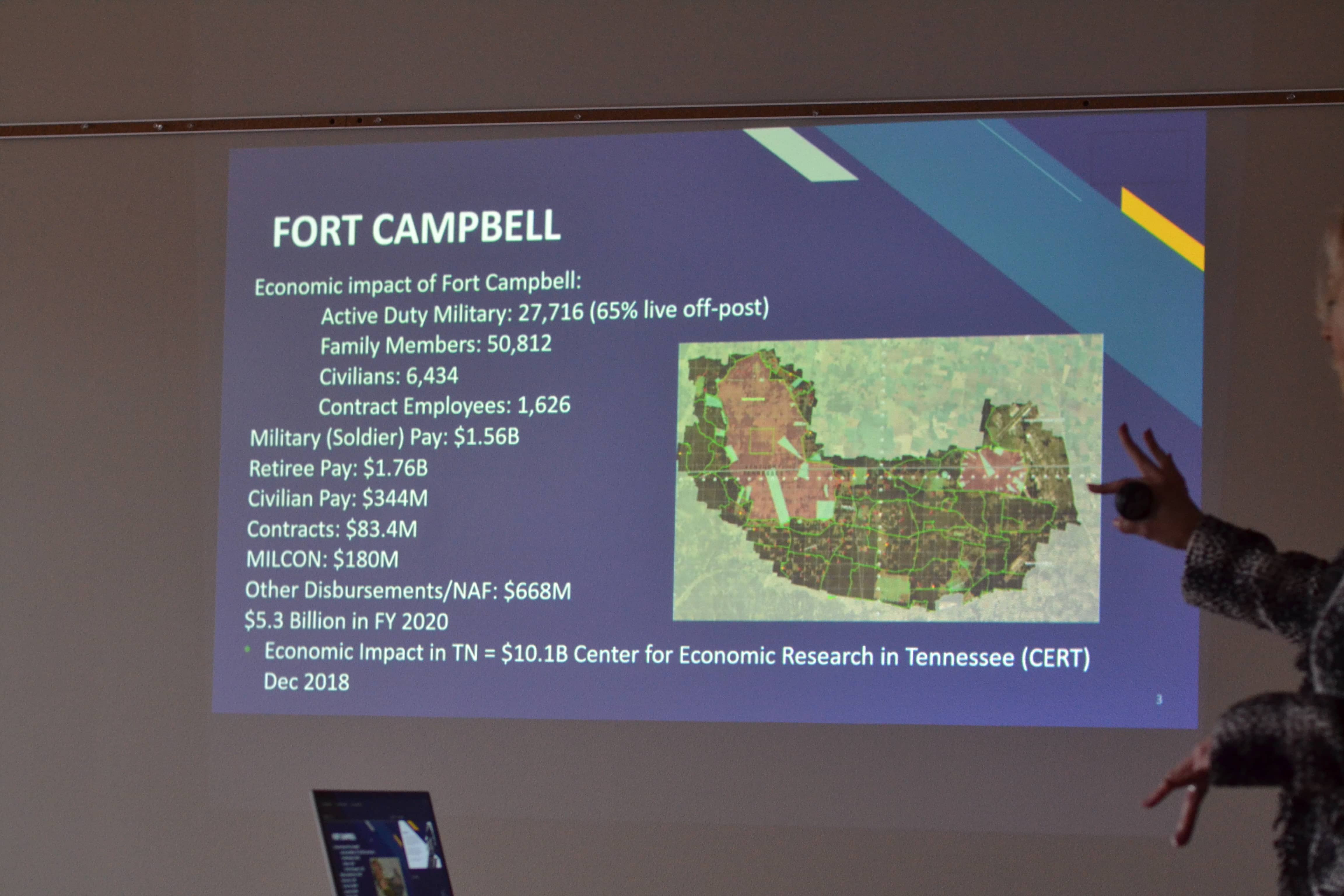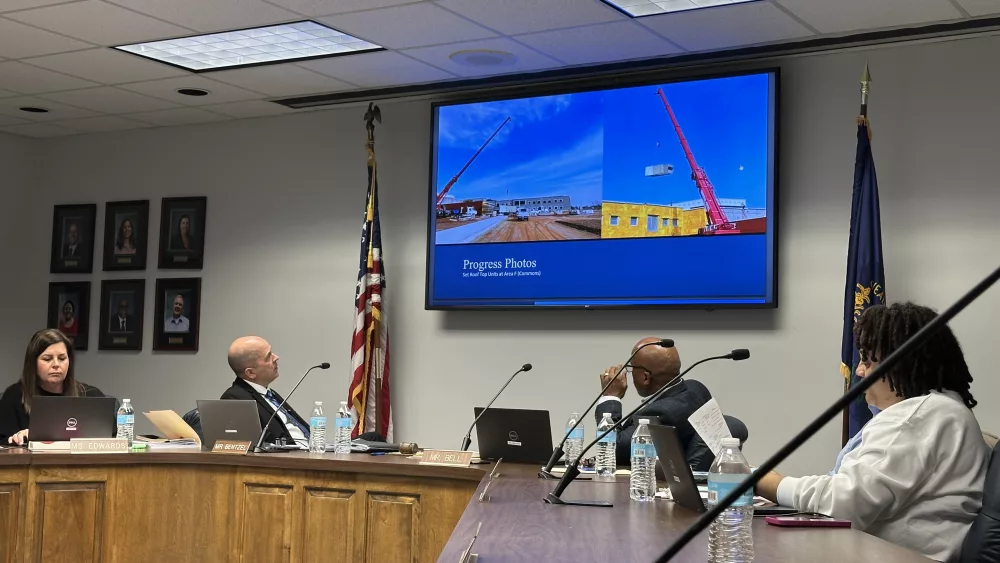
While Fort Campbell’s strategic location has long paid dividends in the military world, its straddling of the Kentucky-Tennessee state line sometimes creates a boondoggle for its incoming and outgoing troops.
The conundrum comes from where to raise the roost, and while 65% of its active military live off post, the age-old discussion has been whether to turn left and live in Kentucky, or turn right and live in Tennessee.
Each locale certainly has its pros and cons. But with west Kentucky’s explosive economic growth, and hundreds of good jobs potentially on the way, a trained and sturdy workforce is necessary for the next step.
During Thursday’s Trigg County Chamber of Commerce Lunch & Learn session, Campbell Strong Defense Alliance CEO & President Kelli Pendleton discussed this and more with noted local dignitaries — urging anyone listening to continue the push for tax-exempt retirement in Kentucky career military veterans.
Already, active-duty military enjoy tax relief in Kentucky. But, as Pendleton noted, that ends once retirement comes into play — and soldiers, more often than not, opt for Tennessee’s lack of an income tax on salaries, wages, bonuses or any other type of income-for-work.
But the footprint for business is expanding well beyond Fort Campbell’s city limits, and housing is needed in west Kentucky — specifically in Todd, Christian and Trigg counties.
Per Pendleton, Fort Campbell is Kentucky’s largest overall employer and Tennessee’s second-largest. And it means that both short-term and long-term soldiers leave the Army with specific skill sets ready for the workforce — particularly those of industrial, mechanical or technological nature.
Monthly, more than 300 soldiers transition out of military life in Fort Campbell and into the civilian world, and often with families in tow. Pendleton said they’re looking to stay, and while some may seek the urban lifestyles of Clarksville and beyond, some want to reside in Kentucky and turn to a more rural, agrarian, hunting-and-fishing lifestyle.
In what continues to be a chicken-and-egg argument, Pendleton said the biggest thing driving new business to west Kentucky comes from median household income and total population. If both are robust, it can attract better-paying careers.
But if Fort Campbell’s families aren’t retiring and/or residing in west Kentucky, that’s economic loss for the Commonwealth.
House Bill 37 — asking for tax exemptions for military retirees in Kentucky, was sponsored by Walker Thomas, strongly supported and was introduced into the Legislative Research Commission during the 2021 Regular Session of the state’s General Assembly.
LRC staff estimated that the fiscal impact of exempting all military retirement income above the current $31,110 threshold for the estimated 6,400-plus officers and enlisted military retirees in Kentucky could cost the General Fund nearly $4.6 million in a full fiscal year.
Pendleton, however, noted there were other reasons why this House Bill continues to languish in House Appropriations and Revenue — mainly the desire for full tax reform, rather than partial.
Five states passed tax-free military retirement in the past year: Arizona, North Carolina, Utah, Indiana and Nebraska.
For more information about Campbell Strong Defense Alliance, visit fortcampbellstrong.org.







